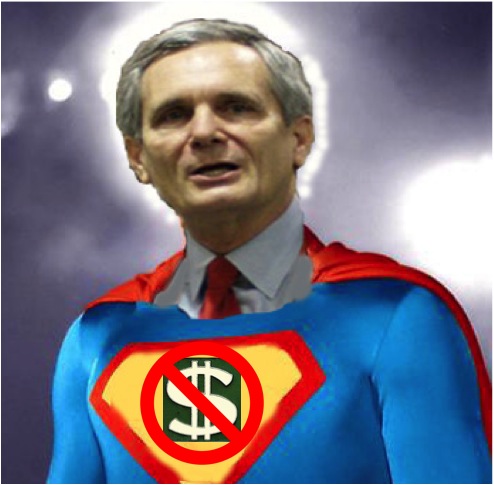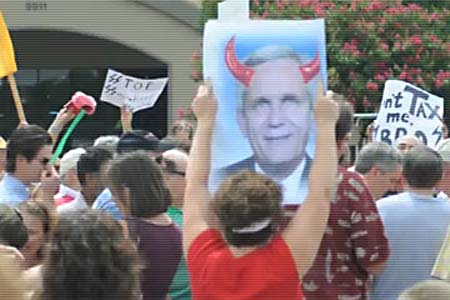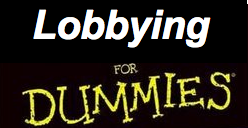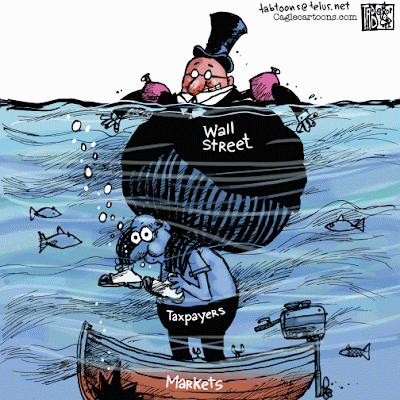UPDATE: Greenpeace has just obtained an internal API memo detailing their astroturf plans. You can read the memo and Greenpeace’s reply here. Job “whale” done, Greenpeace!
***
Most people have a good general conception of what a real grassroots movement looks like: citizens get outraged over some injustice or inequity and get organized and get active. These campaigns are built from the bottom up.

Astroturfing a Texas Highway
And what happens when you don’t have a grassroots movement but want to make it look like you do? Well, then you Astro-turf a movement in, paying hired guns to pretend to be “activists” who then show up to townhall meetings and other public forums. Fake grass- sent from top down, rather than something grown naturally from the ground up. A lot of these protesters have been either astroturfed in or given specific instructions on how to disrupt these townhalls in an attempt to shout down opinions other than their own.
We in Texas know a thing about Astroturf, the name having originated as the name of the artificial turf used in the Houston Astrodome. (Coincidentally, the first ever Super Bowl played on astroturf was also in Houston at SuperBowl VIII in 1974.)
Many have criticized recent astroturf campaigns on healthcare, climate change, and the infamous tea-baggers because of their coordination by Washington lobbyists and special interests. In fact, Senator Dick Durbin (IL), the #2 Democrat in the Senate, Sunday told CNN’s John King,
“We have these screaming groups on either side. That isn’t helpful. Let’s be honest about this. . . this is clearly being orchestrated, and these folks have instructions. They come down from a Texas lobbyist in Washington.”
So what’s the difference between what Public Citizen does (educate, activate and organize citizens) and what the astroturfers do (hired guns, fomenting support based on misinformation for the purpose of financial gain)? Many groups engage in grassroots organizing, from Public Citizen to the League of Conservation Voters to the NRA, and use their membership to engage in activism, and some of this leadership comes from our paid staff in DC or Austin, etc. However, Public Citizen has a long history of never accepting donations from corporations or government grants, meaning we can always clearly represent only the interests of our membership without any conflicts of interest.
On the complete opposite side of the spectrum, these atroturf campaigns are actually schilling for major corporate interests who have a financial stake in climate change, health insurance, etc. The most glaring example is ACCCE, the coal industry group that represents 48 of the largest coal electricty utilities in the US with a combined net revenues last year of nearly $200 billion. ACCCE’s mission is to sell their false claims of clean coal technology. Haven’t heard of ACCCE? Well, maybe it’s because they used to be called “Americans for Balanced Energy Choices” but decided to “rebrand” since it became obvious that “balanced” energy choices meant all coal all the time.
Their ads became so ridiculous they became parodied like this, in this commercial from Oscar Winners Joel and Ethan Coen:
[youtube=http://www.youtube.com/watch?v=W-_U1Z0vezw]
Anyway, they’re up to their old Orwellian tricks again.
In the weeks before the House voted on the American Clean Energy and Security Act (ACES), ACCCE’s lobbyists forged letters to Congress, claiming to be representatives of minority and environmental justice groups such as NAACP. (A huge tip of the hat to to Kate Sheppard at Grist who has been following this very closely– also follow Kate on Twitter for the best enviro updates this side of @ClimateHaiku)
Even more amazing was that these letters claimed that enacting climate legislation would hurt low-income communities, even though the national NAACP (and many, many other social justice groups) had come down in support of ACES. No word yet how many fake letters they sent to members of Congress pretending to be average constituents, rather than important community members who could be easily verified, and we will probably never know the extent of the fraud they have perpetrated.
That is Astroturfing, my friends.
Another egregious example, coming soon to the theater near you, is that the American Petroleum Institute and National Association of Manufacturers along with other flat-earth anti-climate change legislation groups are teaming up to host townhall-style meetings in 20 key states to attempt to influence the passage of the climate bill in the Senate (see articles here and here). So, the deep, deep pockets of big oil and big business are trying to buy themselves a grassroots movement. Will they have any luck?
And then, as a corollary to astroturfing, we have the local example of Austin’s Congressman Lloyd Doggett, who has gained a lot of media attention because of the angry throngs showing up to mob him and yell “Just Say No!” to health care reform.
Depending on your view of Doggett, 
 you may have shown up to his previous townhalls to lambaste, lampoon, or lavish praise on him. I have been to these neighborhood office hours before to speak with Congressman Doggett (he is, after all, my Representative in Washington) and I have never seen anything like what happened two weeks ago. Most people show up to politely engage the Congressman about a (more…)
you may have shown up to his previous townhalls to lambaste, lampoon, or lavish praise on him. I have been to these neighborhood office hours before to speak with Congressman Doggett (he is, after all, my Representative in Washington) and I have never seen anything like what happened two weeks ago. Most people show up to politely engage the Congressman about a (more…)
Read Full Post »










